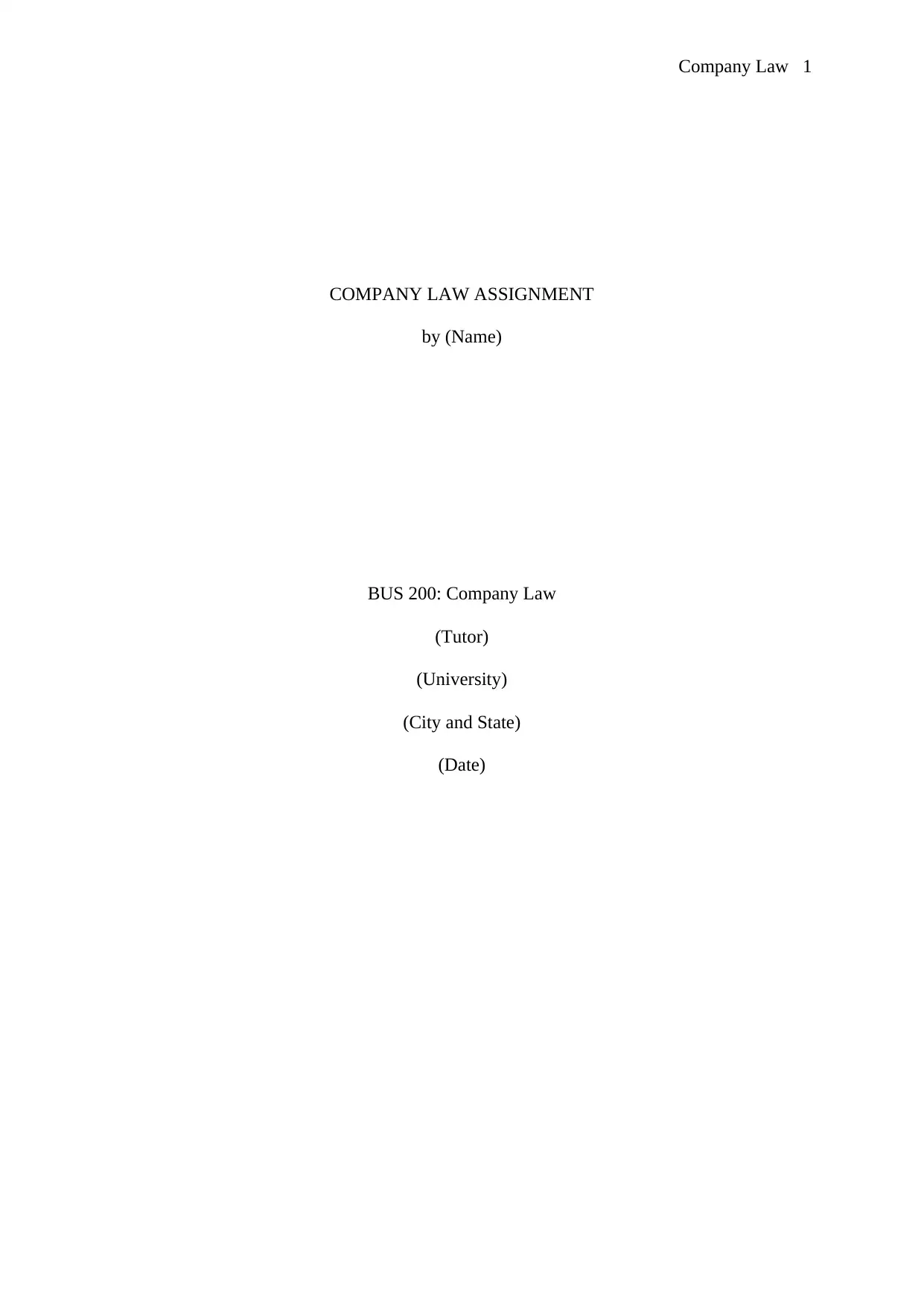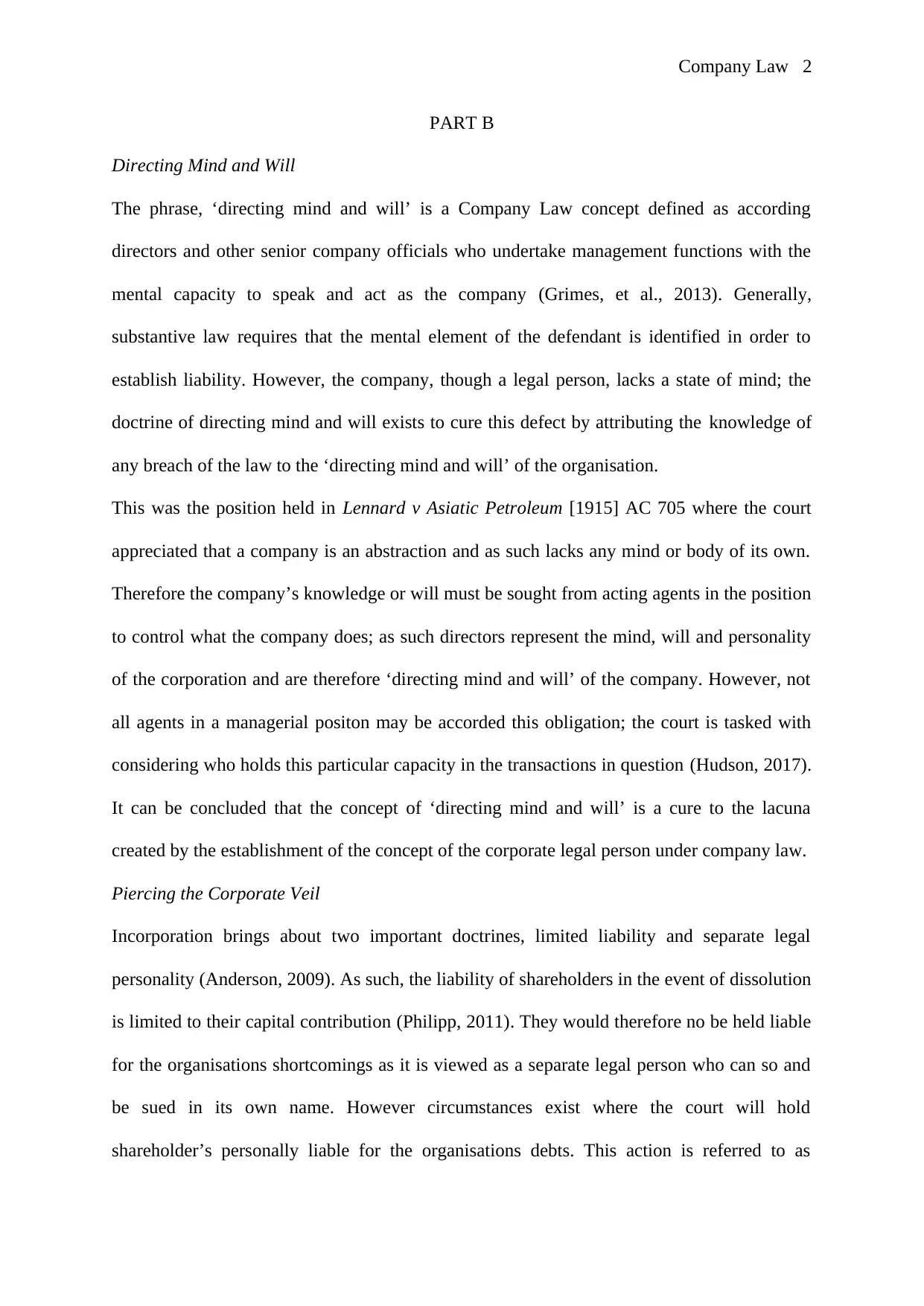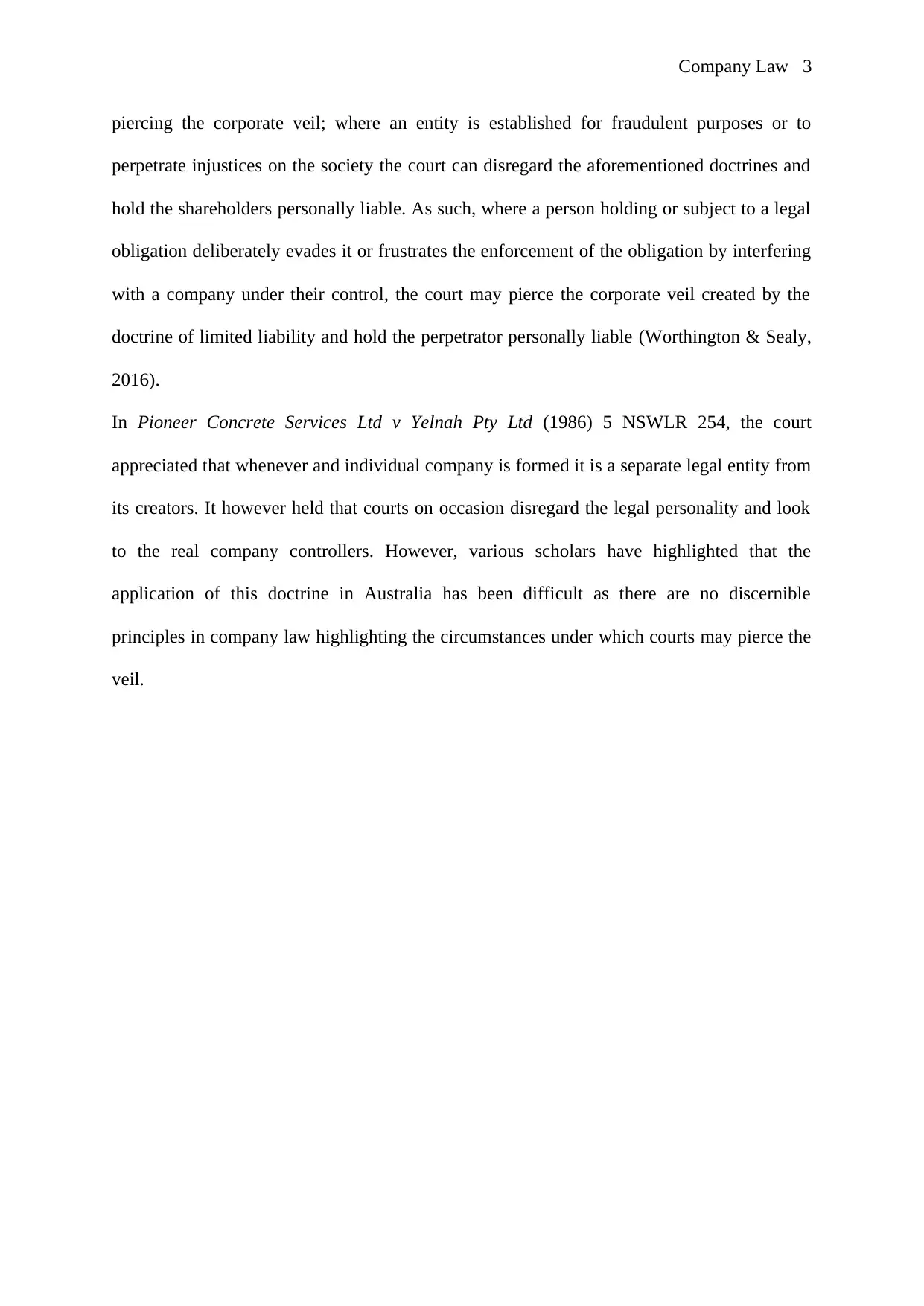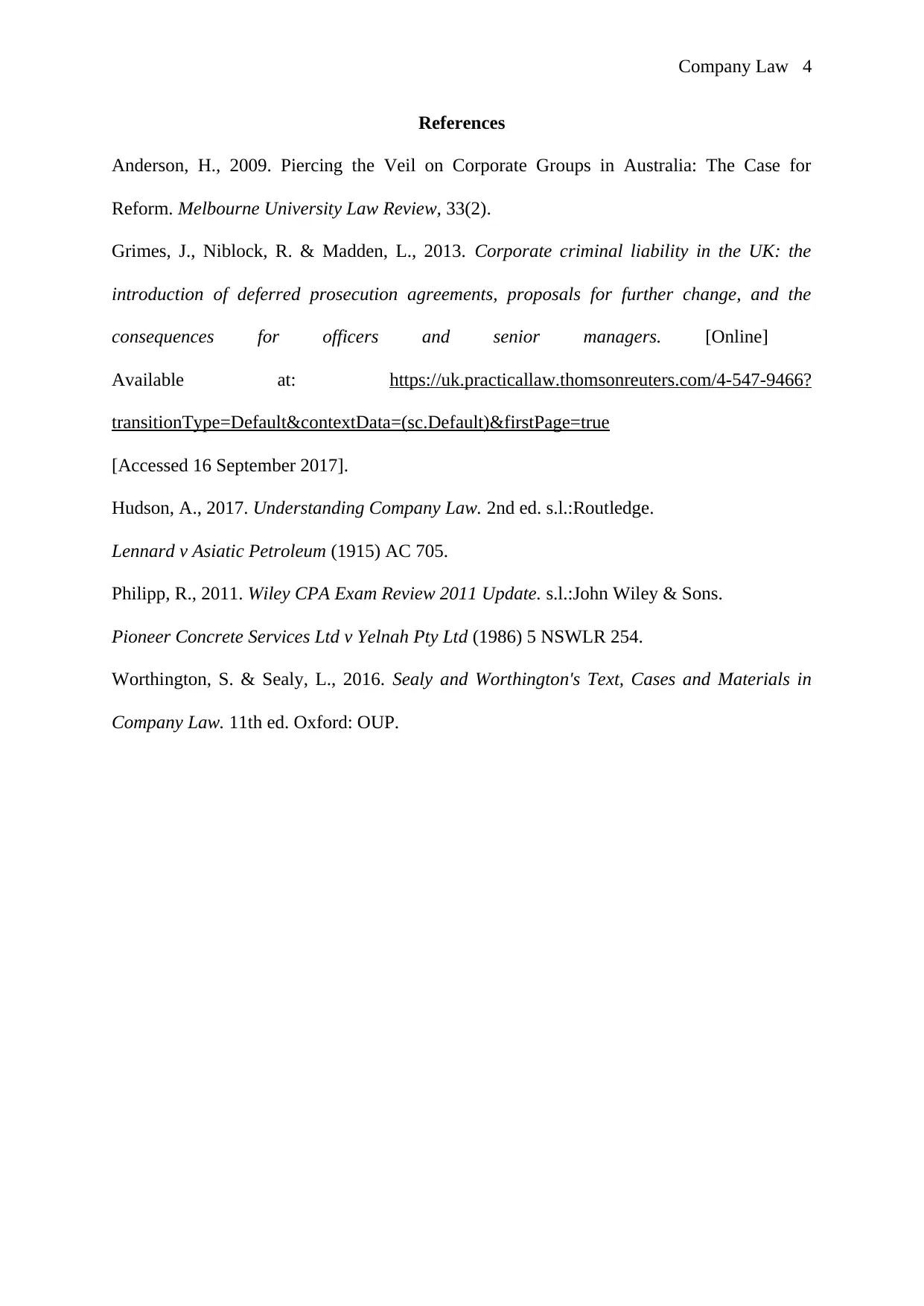Company Law Assignment: Directing Mind, Piercing the Corporate Veil
VerifiedAdded on 2020/03/23
|4
|791
|53
Homework Assignment
AI Summary
This Company Law assignment explores the concepts of 'directing mind and will' and 'piercing the corporate veil.' The assignment defines the 'directing mind and will' as senior company officials with the mental capacity to act as the company and discusses how it addresses the issue of corporate liability due to the company being a legal person without a state of mind. It references Lennard v Asiatic Petroleum, highlighting directors' roles as the mind and will of the corporation. The assignment also explains the concept of piercing the corporate veil, which allows courts to hold shareholders liable for company debts in cases of fraud or injustice, disregarding the doctrines of limited liability and separate legal personality, with reference to Pioneer Concrete Services Ltd v Yelnah Pty Ltd. The assignment concludes by noting the difficulties in applying this doctrine in Australia.
1 out of 4











![[object Object]](/_next/static/media/star-bottom.7253800d.svg)